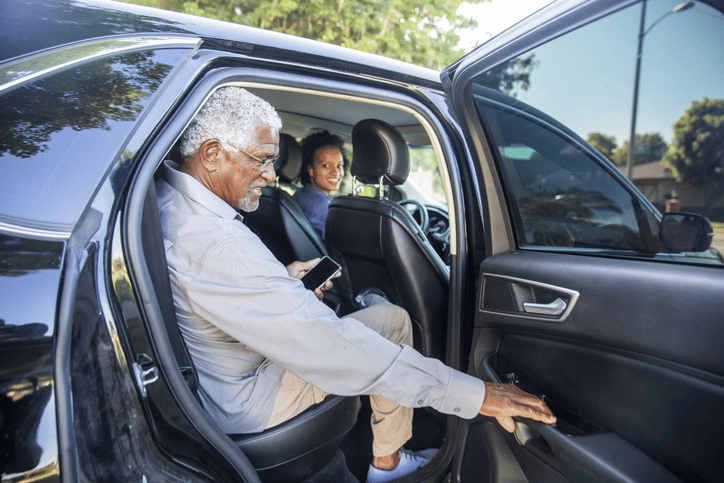Getting Them To Give Up The Keys

Losing independence is undoubtedly one of the hardest parts about getting older. We’re all used to a certain level of freedom in our daily lives and if we can drive ourselves wherever we want to go, our cars are our ticket to continued independence. Being able to drive can keep older adults connected to their friends and communities, so it’s understandable that they’re hesitant to give up the keys.
However, with an increasing population of senior citizens on the road, it’s important to be able to recognize when it’s no longer safe for your senior loved ones to be behind the wheel. Having this conversation with your elderly parents can be difficult and you can expect some resistance, but remind them that it’s ultimately in the interest of everyone’s safety. Plus, with options like Uber, Lyft, and senior ride services, not being able to drive is no longer the burden it once was.
Causes of Driving Difficulties with Age
Many older adults will experience changes to their health that affect their ability to drive. Things like hearing loss, increased vision impairment, and changes to their mobility will all make driving more difficult. In addition, our reaction time slows as we age, making driving unsafe if we can’t react as quickly as needed. Certain side effects of prescription medications can also make it unsafe to drive, so it’s important to be aware and monitor any medication side effects.
While hearing aids and glasses can help with certain levels of hearing and vision loss, your loved ones’ condition may have progressed to the point that it’s no longer safe for them to be behind the wheel.
Warning Signs of an Unsafe Elderly Driver
They suddenly start getting more tickets. If your senior loved one doesn’t have any history of traffic violations or tickets, but they suddenly start receiving them, it may now be unsafe for them to drive. Try to take some drives with them and observe their driving skills, parking skills, and overall agility. If something has changed, you’ll be able to tell.
You notice scrapes and dents on their car. All cars get little nicks from time to time, but if you notice fresh scratches, scrapes, and dings on your older loved one’s car, it may be because they can no longer properly control their vehicle.
They’re reluctant to drive. If your loved one protests driving somewhere that they would usually not have an issue going, or if they seem tired, tense, or stressed after completing a short drive, they might be aware that they’re losing their agility and driving skills. Driving at night can be particularly challenging and stressful for aging seniors.
How to Talk to an Elderly Loved One About Driving
Approach the conversation with empathy. It’s important to recognize that many seniors have a legitimate fear of no longer being able to drive, and your loved one will most likely protest your suggestions that they aren’t able to drive safely anymore. Instead of arguing back and forth or creating tension, listen to their concerns and thoughts before continuing the conversation.
Discuss alternative transportation. As mentioned, most places are now served by Uber, Lyft, and other rideshare programs made especially with seniors in mind. These services make getting from point A to point B much easier for those who don’t drive. Or, if you live in a big city with public transportation, it may be worth purchasing your loved one a train pass or a bus pass so they can still have the freedom to go where they please.
Remind them that their safety is your biggest priority. While asking your loved one to give up their keys might feel like a punishment to them, it’s actually about safety. You want them to be as safe as possible for as long as possible, and if driving puts them in an unsafe position, it’s time to think about alternatives.
If you have any questions, please contact our team at UMC today. We look forward to hearing from you.




